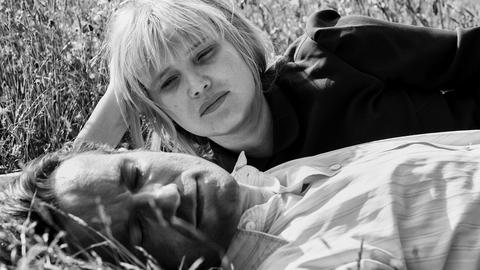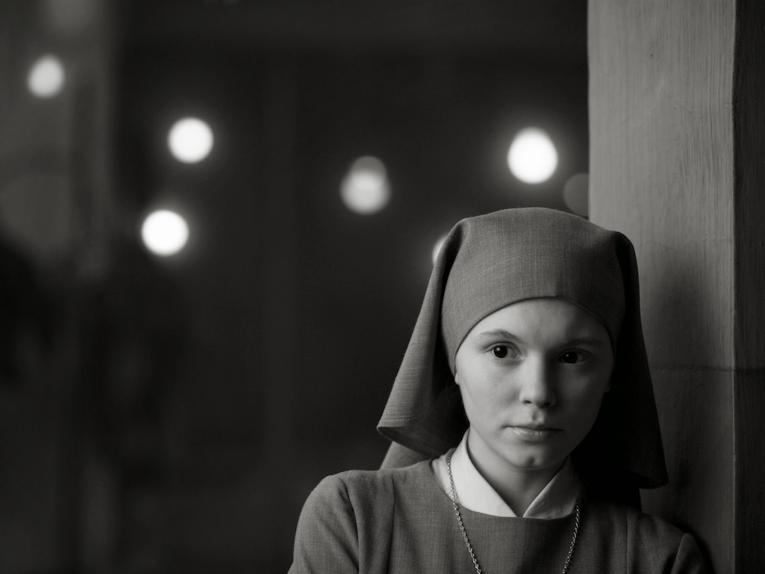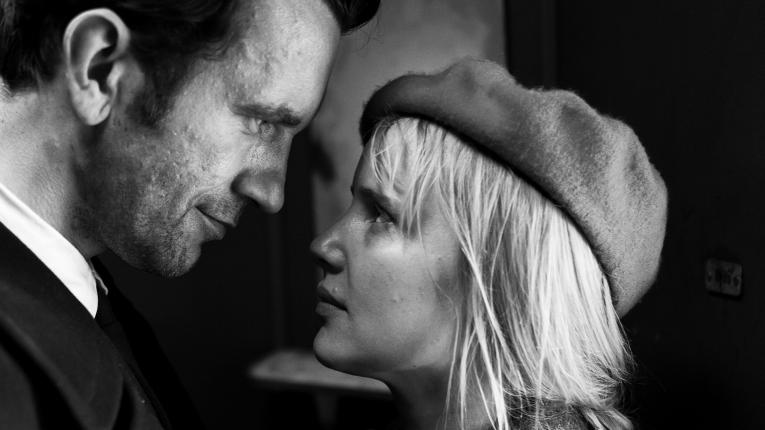
Tara Judah
on Tue 28 Aug 2018What's fair in love and Cold War?
Posted on Tue 28 Aug 2018
Where love and war are concerned, it's all just shades of grey. Paweł Pawlikowski's Cold War romance hits the big screen with striking polemic and a full palette of black and white, Cinema Producer Tara Judah writes.
The adage that 'all's fair in love and war' could easily have been said with a throwaway shrug by one of Paweł Pawlikowski's protagonists in Cold War - except that it would imply the pair had a clear objective in their tempestuous love affair. Like a Greek tragedy, transposed in its final act to the Gulag, Zula (Joanna Kulig) and Wiktor's (Thomasz Kot) is an unlikely love story for the ages.
Hanging their ill-fated romance against post-WWII Europe - specifically Poland, Berlin, Paris and the former Yugoslavia - positions their romantic war as both a domestic dispute and capital P Political. This is familiar territory for writer-director Pawlikowski, whose 2015 Best Foreign Language Academy Award Winner, Ida, bowled over critics and audiences alike with its strident exploration of Polish involvement in the Holocaust through one woman's hidden family history.

Internationally, Ida was a widespread success. In addition to its Academy Award win, it picked up a slew of trophies and accolades, from the Film Independent Spirit Awards to the BAFTAs. But, when it aired on Poland's Public Broadcaster TVP, it wasn't presented with the same level of admiration. Screening an editorial programme titled Around Ida before the film itself, Pawlikowski's award-winner was subject to a critical discussion that essentially accused him and the film of being "anti-Polish", before viewers at home had even had the opportunity to see it and decide for themselves.
The broadcaster then came under protest from the Guild of Polish Directors including Andrzej Wajda (A Generation, Ashes and Diamonds) and Agnieszka Holland (The Secret Garden, Spoor), 90 film critics, as well as the European Film Academy (EFA), all of whom saw the preceding programme as an attack on Pawlikowski and Ida. Criticism of the film included suggesting it would not have won an Oscar if it weren't for its 'pro-Jewish' point of view. Possibly all the more critical of Pawlikowski for his western perspective on Poland's history - he was exiled as a teenager, living and working for most of his life in the UK - TVP was accused of presenting Ida in a "biased and harmful way". To make things worse, this occurred not long after the Polish government had announced plans to introduce a law that would make it a criminal offense to imply that Poland was responsible for atrocities carried out on Polish territory by Nazi Germany.

With this in mind, Cold War packs a far greater political punch. Zula and Wiktor are not just hapless lovers and, though their passion is palpable, there are bigger issues at play. As such, the pair are tragically doomed by circumstance from the moment they meet: how could they ever trust one another when national loyalties and historical truths are at stake?
Still, the film refuses to be pigeon-holed by the broad brushstrokes of political allegory. Instead, Pawlikowski keeps the audience guessing: what happened in the great lapses of moments and even years in between what we as an audience get to see? And what will become of the couple's love story as the very fabric of space and time appears to tear in two?
Leaving us to wrestle with whether or not Zula's past is what she or others say it is, Pawlikowski frequently pushes polemic aside in favour of focusing on the humanity of his characters. Apparently inspired by his own parents' rocky marriage - his characters bearing their names and the film a posthumous dedication - Cold War is a story about all that is not fair in love and war.
Written by Cinema Producer Tara Judah
Cold War screens from Fri 31 Aug for at least a week.

